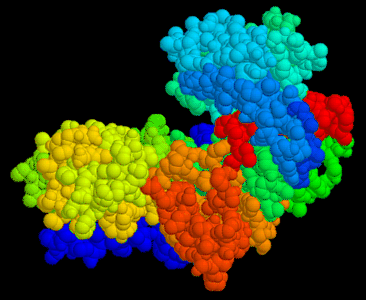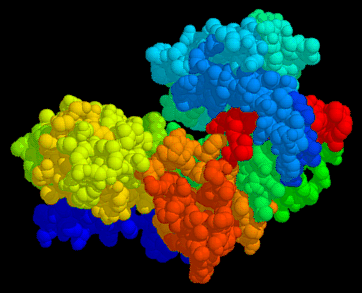
Enzyme (in this example: hexokinase): Like all kinases it catalyzes a phosphorylation reaction. The molecule consists of two domains. A cleft forms between both that is exactly fitted for the substrate. A solid model is depicted, where the full size of the atoms is shown. This type of model makes it understandable that molecules are compact structures but they are less suited to show the course of the polypeptide chain. To give an impression, the parts of the molecule (from the N- to the C-terminus) are marked from red via orange, yellow, green, turquoise to blue. (W. S. BENNETT, T. A. STEITZ, 1980).

After binding of the substrate changes the conformation of the
enzyme. The two wings shift in their position towards each other
so that the substrate becomes completely enclosed. There is no
more space for even a single water molecule in the cleft.